
Contempt of Court in the Family Law Setting
N.C. Court of Appeals Family Law Update – Contempt of Court
The Powers Law Firm in Charlotte is dedicated to providing helpful information to people interested in the NC Divorce Laws.
To that end, we regularly post materials on our blog and website regarding advances in the law and legal rulings.
We believe good decisions during divorce are predicated on good information and sound legal advice. Divorce is complicated and sometimes an emotional, messy affair. We want to help people. That’s why we do what we do – Bill Powers, Charlotte Divorce Lawyer
What’s in this Blog Post?
In this blog post, we will discuss civil contempt in family law cases in North Carolina.
Civil contempt can serve as a powerful tool to enforce Court Orders.
In the family law context, it is often used to compel parents to comply with child custody and support orders. 
What’s new in Divorce in North Carolina?
N.C. Court of Appeals, on July 5, published a new batch of cases, two of which provided insight and clarity into some nuances within NC family law.
In Bossian v. Bossian, the Court—authored by Judge April Wood—touched on an array of issues including private modification of a custody order, effectuating a prior contempt order, and Rule 59 & Rule 60 Motions.
Background Fact Pattern
In Bossian, the parties were married in August 1998 and had two minor children before they eventually separated and divorced after February 2013.
A child custody and support order was entered in February 2015 granting primary custody of the parties’ two minor children to the Plaintiff-mother and secondary physical custody in the form of visitation during the minor children’s school breaks to the Defendant-father, who was living in Rhode Island.
The Order also required Defendant to pay $1,225.87 in monthly child support until the order was modified or terminated.
In March 2015, the court resolved the pending equitable distribution claim requiring Defendant to pay a $1,800 distributive award to Plaintiff from the proceeds following the sale of the marital home. These two orders remained in effect and were never modified by the court.
Shortly after, in January 2016, the parties privately agreed—absent the court’s involvement or permission—to modify the custody order allowing the parties’ younger minor son to move and live with Defendant-father, who ostensibly would assume primary custody.
The minor child remained with Defendant from January 2016 until July 2018 when he returned to North Carolina to live with Plaintiff. Defendant did not pay child support pursuant to the child support order during this period.
Later, in March 2020, Plaintiff filed a show cause motion to hold Defendant in contempt for Defendant’s failure to pay child support, unreimbursed medical expenses, and the distributive award pursuant to the March 2015 Order.
After a contempt hearing, the trial court entered an order in September 2020 holding Defendant in contempt for his failure to pay his aforementioned legal obligations, as well as awarding Plaintiff attorney’s fees.
The court set Defendant’s purge amount at $31,398.52 to be paid by the end of October 2020. The Contempt Order required Defendant to be taken into custody if the amount was not paid by the deadline.
A few days following the Contempt Order, Plaintiff filed a Rule 60 Motion for Relief to correct a clerical error resulting in a lower miscalculation of Defendant’s child support arrearages. 
Defendant filed a Rule 59 Motion for Relief from Civil Contempt and Attorney’s Fees arguing that no evidence was presented at the hearing of Defendant’s current ability to pay—a statutory requirement to be held in civil contempt—contesting his civil contempt adjudication.
Both the party’s respective motions were heard at a hearing in April 2021. The presiding judge granted Plaintiff’s Rule 60 Motion and denied Defendant’s Rule 59 Motion.
The judge concluded the hearing by inquiring whether Defendant had purged his contempt pursuant to the September 2020 Contempt Order. The judge found that Defendant had the present ability to purge his contempt and ordered Defendant to pay $9,300—a reduction from the previously ordered $31,398.52—and be taken into custody until he had satisfied this purge amount.
Defendant appealed the trial court’s granting of Plaintiff’s Rule 60 Motion, denial of Defendant’s Rule 59 Motion, and Defendant’s order to be taken into custody.
Court of Appeals’ Holding & Key Takeaways
The Court of Appeals in its reasoning provided several takeaways in its Bossian holding:
1. A Judge May Effectuate a Previously Adjudicated Contempt Order Without Providing New Notice to the Contemnor
Defendant’s first argument was that the trial court’s holding him in contempt and his arrest after the April 2021 hearing on the party’s respective Rule 59 and 60 motions was a violation of his due process rights because he was not provided notice of the potential contempt hearing and of his arrest.
The Court disagreed holding that so long as the original contempt order was properly initiated—via a judicial order to show cause—and the contemnor had notice of the order and has presently not purged his contempt, then it is within a trial court judge’s discretion whether to stay or effectuate the enforcement of a civil contempt order.
Neither the trial court’s use of a second contempt order to enforce the original contempt order, nor the modification of the original purge amount in a second contempt order, constitutes a “new” contempt order that would require new notice.
2. A Clerical Error in a Contempt Order Does Not Give a Contemnor Legal Justification to Not Comply with the Order
The next argument that Defendant makes is that because both parties were contending that there were errors in the original contempt order, his failure to make the ordered payments could not be willful because 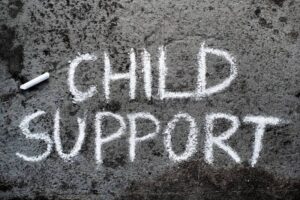 he did not have the ability to comply, thereby preventing him from being held in contempt.
he did not have the ability to comply, thereby preventing him from being held in contempt.
The Court noted that two statutory elements of civil contempt are that the contemnor’s violation is willful (i.e., an ability to comply and an intentional failure to do so) and he must have the actual ability to take reasonable measures to comply. However, it disagreed with Defendant’s argument citing Rule 62(b), and held that absent a Rule 62 motion to stay a contempt order, a contemnor’s compliance is mandatory.
3. Private Agreement, Absent a Court Order, Does Not Justify Noncompliance with a Court Order
The final key takeaway from the Court of Appeals’ ruling in Bossian is a contemnor’s noncompliance is still willful regardless of if the parties privately agree to not comply with a court order.
Defendant argued that it was error for the trial court to deny his Rule 59 motion because the evidence showed that his non-payment of his child support obligation was not willful due to the parties’ private modification of the child custody agreement.
The Court was unpersuaded by this argument.
The Court emphasized that pursuant to N.C. law, a child support order can only be modified by the court via a pending child support action and a showing of changed circumstances.
The Court iterated, and then later reiterated, that parties may not modify a court order through extrajudicial written or oral agreement, and a party has an obligation to follow a court order until it has been lawfully changed via judicial decree.
Charlotte Divorce Lawyers – Powers Law Firm
- Equitable Distribution
- Civil Contempt
- Child Support
- Alimony
- Visitation
- Why you should hire a Divorce Lawyer
- Domestic Violence Protective Orders

Past Due Child Support
 Failure to pay child support in North Carolina is problematic at best. Past due child support may result in contempt proceedings, assuming there is an ability to pay.
Failure to pay child support in North Carolina is problematic at best. Past due child support may result in contempt proceedings, assuming there is an ability to pay.
If you have legal questions about child support and your legal options in the event support is either consistently late and/or non-existent, speak with an experienced Charlotte family law attorney.
Each case, like each client, is unique. The background circumstances regarding how child support came into existence may play a key role in making a claim.
Is child support court ordered?
Under the NC family laws, parents have a legal duty to support their children. Some parents choose to agree to terms of child custody and child support.
Other times, especially those involving litigation where custody cannot be agreed upon by the parties, may require a formal Court Order. If formally Ordered by the Court, past due child support inconsistent with that Order may subject the offending party contempt proceedings.
The following case entitled Dillingham v. Ramsey is a published opinion issued in 2019 by the North Carolina Court of Appeals and is intended as legal reference material.
Related Legal Issues and Family Law Topics
- Dillingham v. Ramsey – Court of Appeals Opinion
- Child Support Calculator
- Child Support in North Carolina
- Child Support Guidelines
Dillingham v. Ramsey
IN THE COURT OF APPEALS OF NORTH CAROLINA
No. COA18-811
Filed: 17 September 2019
Buncombe County, No. 05 CVD 1276
KELLI DILLINGHAM, Plaintiff,
v.
SCOTT RAMSEY, Defendant.
Appeal by plaintiff from order entered 26 January 2018 by Judge Andrea F. Dray in District Court, Buncombe County. Heard in the Court of Appeals 13 February 2019.
Sharpe & Bowman, PLLC, by Brian W. Sharpe, for plaintiff-appellant. Siemens Family Law Group, by Brenda Coppede, for defendant-appellee.
STROUD, Judge.
Mother appeals the trial court’s order based upon its calculation of past due child support and allowing Father to pay arrears at the rate of $100.00 per month. Mother invited any error in the calculation of the child support arrears. Where Father was obligated under a 2009 order to pay child support and failed to pay Mother $24,400.00, the trial court abused its discretion by ordering Father to pay the arrears at the rate of $100.00 per month—or over a period of 20 years and 4 months—when, based on Father’s high income, he had the ability to pay the entire amount.
I. Background
DILLINGHAM V. RAMSEY
Opinion of the Court
Mother and Father married in 1996 and divorced in 2006. Together they have four children. Father was required to pay $4,877.00 per month in child support under a 30 October 2009 order. At the time of the 2009 order, his monthly gross income was $28,401.00, and his monthly expenses were $16,282.00. Mother’s monthly gross income was $3,927.00, her monthly expenses were $5,313.00, and her expenses for the children were $3,491.00. Because of the parties’ high combined income, the trial court set child support based upon the parties’ incomes and the needs of the parties and children. The October 2009 order decreed that “[Father] shall pay child support to Plaintiff in the sum of $4,877.00 per month, retroactive to February 1, 2009.” The order did not address any reduction in child support upon a child turning 18; in fact, the order failed to address cessation of child support at all.
In September 2015, after the parties’ oldest child started attending college, Father unilaterally reduced his child support payment by 25 percent. Father reduced his monthly child support payment by an additional 25 percent once their second oldest child began attending college. Father did not file any request for modification with the court before reducing the payments.
On 3 November 2016, Mother filed a motion for contempt and show cause requesting Father be found in contempt of court for failure to pay child support as required by the 2009 order, requesting the past due child support and attorney’s fees. On 24 January 2017, Father filed a motion to modify child support and custody,
-2-
DILLINGHAM V. RAMSEY
Opinion of the Court
seeking modification of custody and a reduction of child support. On 23 February 2017, Mother filed a response to Father’s motion and requested modification of child support due to father’s increase in income and the needs of the children. The parties agreed on the issues of child custody and child support modification and entered a consent order before the hearing on the contempt motion. On 5 December 2017, a hearing was held on Mother’s motion for contempt for failure to pay child support. The trial court entered an order on 26 January 2018 finding Father failed to pay as required by the 2009 order, but was not in willful contempt, and required him to pay $24,400.00 in child support arrears in $100.00 monthly installments.1 Mother timely appealed and Father cross-appealed.2
II. Calculation of Arrearage
Mother argues that the trial court “miscalculated the child support arrearage
as $24,400 when it should have been $26,840.” But, at trial, Mother’s counsel only requested $24,400.00 in his closing statement:
Based on the testimony I heard that would be a total reduction in aggregate of $24,400 from the time period beginning in September 2015 when the first reduced payment was made through December 2016, the month immediately preceding defendant’s filing of his motion to
1 The order also provided “[t]hat nothing herein will prohibit [Father] from paying the total amount due, or higher amounts at any time, until the arrears are paid in full.” Since neither party has raised an issue of mootness with this Court, we presume Father has thus far not elected to pay off the arrears in full.
2 Father subsequently withdrew his cross-appeal pursuant to North Carolina Rule of Appellate Procedure 37(e)(1).
-3-
DILLINGHAM V. RAMSEY
Opinion of the Court
modify the support amount.
Mother asked the trial court for $24,400.00, and the trial court ordered Father
to pay that amount in child support arrears. To the extent that it was an error not to include child support payments for January 2017 in the trial court’s calculations, it is invited error, and Mother “may not base an appeal on an alleged error that she invited.” See Quevedo-Woolf v. Overholser, ___ N.C. App. ___, ___ 820 S.E.2d 817, 835 (2018). This argument is dismissed.
III. Payment of Arrearage
Mother argues that “[t]he trial court abused its discretion by enforcing the arrearage in installments of only $100 per month[,]” as this will extend the payment of the arrears over 20 years, until the children who were to benefit from the child support are in their thirties, while Father earns over $1,700,000 per year and has the ability to pay all of the arrears.
No prior cases address a trial court’s determination of how child support arrears should be paid in this context—where it appears the payor has the ability to pay arrears immediately—but as in child support matters generally, the trial court has broad discretion to order a remedy supported by the facts and circumstances in the particular case:
Computing the amount of child support is normally an exercise of sound judicial discretion, requiring the judge to review all of the evidence before him. Absent a clear abuse of discretion, a judge’s determination of what is a proper
-4-
DILLINGHAM V. RAMSEY
Opinion of the Court
amount of support will not be disturbed on appeal. In exercising sound judicial discretion, a trial judge is guided by the following general principles:
By the exercise of his discretion, a judge ought not to arrogate unto himself arbitrary power to be used in such a manner so as to gratify his personal passions or partialities. A judge is subject to reversal for abuse of discretion only upon a showing by a litigant that the challenged actions are manifestly unsupported by reason.
Plott v. Plott, 313 N.C. 63, 69, 326 S.E.2d 863, 867-68 (1985) (citation, parentheticals, and ellipsis omitted) (quoting Clark v. Clark, 301 N.C. 123, 128-29, 271 S.E.2d 58, 63 (1980)).
Mother does not challenge any specific findings of fact as unsupported by the evidence in her brief, but she argues that “[i]n the order on appeal, the trial court offered no reasoning or findings of fact to support its ruling for periodic payments of $100 per month towards a substantial arrearage.” Father argues that Mother abandoned any issue of the amount of the monthly payments toward arrears by not requesting a specific amount before the trial court.
We first reject Father’s argument that Mother abandoned the issue of how the arrears would be paid by not requesting a specific monthly payment. Here, there would have been no reason for Mother to request any particular monthly payment. Father has not raised any inability to promptly pay the entire arrears at trial or on appeal.
-5-
DILLINGHAM V. RAMSEY
Opinion of the Court
As the order on appeal notes, the allegations of Mother’s “motion to Show Cause are uncontroverted.” Father unilaterally reduced his child support payments based on his belief that he had the right to do so, but he did not. As the trial court’s order acknowledges, Father had no right to reduce his payments and he violated the 2009 order by reducing the payments. In addition, Mother had a clear legal right to enforce the 2009 order. The trial court’s rationale for not finding Father in civil or criminal contempt was based upon his voluntary payment of expenses for the adult children. Mother does not challenge on appeal the trial court’s conclusion that Father was not in willful contempt, so that portion of the order is final, and we express no opinion on that portion of the ruling.
The order includes findings of fact regarding Father’s payment for college expenses for the parties’ children who had turned 18 and were attending college. The trial court found as of the hearing, Father had paid “total additional funds and payment of expenses” for the two older children of $120,861.30. In addition, he “has paid thousands [of dollars] in school trips and sporting equipment, computers, and vehicles, and in fact, anonymously purchased new equipment for [one child’s] entire high school football team.” He also continued to provide health insurance for all four children and paid 100 percent of unreimbursed or uncovered healthcare expenses for all of the children, although the order required him to pay only 90 percent. Based upon Father’s voluntary payment of these substantial additional expenses for the
-6-
DILLINGHAM V. RAMSEY
Opinion of the Court
children, the trial court found that Father was not in willful contempt of the 2009 order, because he “fairly believed, albeit mistakenly, that the custody and Support order permitted him to reduce the original support amount by one-fourth (1/4) whenever each of the parties’ children in common reached the age of majority and graduated from high school.”
The trial court also found that Father had no legal right to unilaterally reduce his child support, citing to Craig v. Craig, and determined that the order is enforceable and that Father owed the arrears. 103 N.C. App. 615, 618, 406 S.E.2d 656, 658 (1991) (“[W]hen one of two or more minor children for whom support is ordered reaches age eighteen, and when the support ordered to be paid is not allocated as to each individual child, the supporting parent has no authority to unilaterally modify the amount of the child support payment. The supporting parent must apply to the trial court for modification.”). The trial court found that although Father’s voluntary support of the college-age children was “commendable,” those contributions “must be excluded from this Court’s determination of whether to award [Mother] recovery of the child support underpayment and arrearage.” The trial court also found that Father was not precluded from filing a motion to modify child support by “any of the grounds set forth in NC Gen Stat §405-13.10(a)(2) [sic],” and he was not affected by “any physical disability, mental incapacity, indigency, misrepresentation of another party, nor any compelling reason that might have
-7-
DILLINGHAM V. RAMSEY
Opinion of the Court
reasonably prevented him from filing a motion to modify the child support obligation before his monthly payments came due.”3 Because of Father’s voluntary support of the adult children, the trial court determined that “no sanctions or penalty should be imposed” upon him, and Mother does not argue otherwise.
Instead, despite Father’s apparent ability to pay the entire amount immediately, the trial court ordered him to pay $100.00 per month. At this rate, it will take 20 years and 4 months for him to pay the entire arrears. When he completes payment in 2038, the youngest child will be age 35 and the second-oldest will be 38. Most of the arrearages will be paid long after all four children have become adults.
Mother argues that since the primary goal of child support is to ensure the welfare of the minor children, there is no reasonable explanation for extending payment of the arrearages owed over more than 20 years. Instead of having the arrearages paid while the two youngest children are still minors living with Mother— while they can still benefit directly from the child support—nearly all of the arrearages will be paid long after all of the children have become adults. According to Father’s own evidence, his income for 2017 was $144,196.00 per month, or
3 The trial court was clearly referring to North Carolina General Statute § 50-13.10(a): “Each past due child support payment is vested when it accrues and may not thereafter be vacated, reduced, or otherwise modified in any way for any reason, in this State or any other state, except that a child support obligation may be modified as otherwise provided by law, and a vested past due payment is to that extent subject to divestment, if, but only if, a written motion is filed, and due notice is given to all parties either: (1) Before the payment is due or (2) If the moving party is precluded by physical disability, mental incapacity, indigency, misrepresentation of another party, or other compelling reason from filing a motion before the payment is due, then promptly after the moving party is no longer so precluded.” N.C. Gen. Stat. § 50-13.10(a) (2017).
-8-
DILLINGHAM V. RAMSEY
Opinion of the Court
approximately $4,800 per day. The entire arrears is five days of earnings for Father. The $100.00 monthly payment is .069% of Father’s monthly gross income. In contrast, Mother’s annual gross income is $46,054.44; the entire arrears is over half of her annual gross income.
It is well-established, as the trial court noted, that Father had no right to unilaterally reduce his child support:
As this Court has held, the “proper procedure for the father to follow was to apply to the trial court for relief. This he failed to do. He had no authority to unilaterally attempt his own modification.” Quoting Halcomb v. Halcomb, 352 So.2d 1013, 1016 (La.1977), this Court explained:
Support for this rule is found in a proper regard for the integrity of judgments. Such a regard does not condone a practice which would allow those cast in judgment to invoke self-help and unilaterally relieve themselves of the obligation to comply. Any other rule of law would greatly impair the sanctity of judgments and the orderly processes of law. To condone such a practice would deprive the party, in whose favor the judgment has been rendered, of an opportunity to present countervailing evidence, and at the same time deny the judge an opportunity to review the award in light of the alleged mitigating cause which had developed since its rendition. This policy applies equally in North Carolina.
Griffin v. Griffin, 96 N.C. App. 324, 327-28, 385 S.E.2d 526, 528-29 (1989) (citation and ellipsis omitted).
Of course, the trial court did not forgive Father’s arrears but instead allowed -9-
DILLINGHAM V. RAMSEY
Opinion of the Court
him to pay the arrears over a period of over 20 years with no interest. Although the trial court made extensive findings regarding Father’s voluntary payments for the adult children, it also stated these voluntary payments “must be excluded from this Court’s determination of whether to award [Mother] recovery of the child support underpayment and arrearage.” We agree that Father’s voluntary payments are not a proper factor for consideration as to the trial court’s decision as to how the arrears should be paid. The only other rationale we can find in the order for the extraordinarily extended term for payment of the arrears is this finding:
57. [Mother] waited one year and two months to file the Motion to Show Cause from the date that [Father] first reduced his monthly payments. That at the time of the filing of her motion, the two older children were no longer in her home and [Father] was providing exclusively for their financial support. That [Mother] had been complicit in the [sic] allowing [Father] to believe for over a year, that his reduction in child supports [sic] payments was not resisted by [Mother].
Although Mother does not challenge this finding as unsupported by the evidence, she argues that the trial court erred in its interpretation of the law as applied to these facts. By finding Mother “complicit” in “allowing [Father] to believe” that his reduction of child support was “not resisted,” the trial court essentially found fault with Mother for waiting to enforce the order.4 There is no basis in the law for
4 As noted above, the trial court specifically found that Father was not entitled to relief for his failure to file a motion for modification under North Carolina General Statute § 50-13.10(a)(2) based upon any “misrepresentation of another party.”
– 10 –
DILLINGHAM V. RAMSEY
Opinion of the Court
punishing Mother for “waiting” for a year and two months to file a motion to force Father to do what he was legally obligated to do. Even had Mother agreed for Father to reduce his payments without an order from the court modifying the support, the 2009 order would still be enforceable.
In Griffin, the husband was ordered in 1974 to pay the wife child support of $200.00 per month. Id. at 325, 385 S.E.2d at 527. A few months after entry of the order, the husband lost his job and then got new job paying less than his former job. Id. He wrote a letter to the wife announcing that he would “send the kids $100 a month because I do not think that it take [sic] two hundred dollars for my kids to live on and I do not intend to pay your way living the way you are.” Id. He then paid $80.00 per month until 1981, and $40.00 a month until the younger child reached 18 years of age. Id. Eight months after husband ceased his payments, in 1987, wife filed a motion to reduce the arrears to judgment. Id. The trial court determined that the wife had abandoned her rights to enforce the child support obligation by waiting approximately 12 years from the husband’s unilateral reduction of support to file her motion. Id. This Court reversed:
Plaintiff’s argument, based on his ex-wife’s alleged silence and inaction in enforcing what he characterizes as her rights, is misguided. The touchstone in cases involving child custody and support is the welfare of the children, not freedom of contract. As our Supreme Court has observed,
no agreement or contract between husband and wife will serve to deprive the courts of their inherent as well as their statutory
– 11 –
DILLINGHAM V. RAMSEY
Opinion of the Court
authority to protect the interests and provide for the welfare of infants. They may bind themselves by a separation agreement or by a consent judgment, but they cannot thus withdraw children of the marriage from the protective custody of the court.
Just as our case law does not countenance agreements between parents that operate to the detriment of their children’s rights, so it does not allow one parent to evade the obligations of child support by citing the failure of the other parent to insist immediately on such support.
Id. at 328, 385 S.E.2d at 529 (citations omitted).
Although the trial court has broad discretion in ordering the remedy for
Father’s failure to pay child support as ordered, this Court has never had the opportunity to address any factor bearing upon the trial court’s decision to delay payment of child support arrears other than the payor’s ability to pay. In every prior case regarding payment of child support or arrears, the primary issue has been the ability of the payor to pay the arrears. Since the “touchstone in cases involving child custody and support is the welfare of the children,” normally courts require that child support arrears be paid as soon as possible since prompt payment benefits the children. Id. But ability to pay is not an issue in this case. Our prior cases have also noted “the sanctity of judgments and the orderly processes of law.” Id. at 327, 385 S.E.2d at 528. Any ruling which could be interpreted as encouraging unilateral reductions of child support without court approval endangers the sanctity of judgments. See id. The trial court abused its discretion by fashioning a remedy for
– 12 –
DILLINGHAM V. RAMSEY
Opinion of the Court
Father’s failure to pay child support as ordered without considering the purpose of child support, the welfare of the minor children, and without considering Father’s ability to pay.
Here, with payment of child support so long delayed past the date it vested, the trial court also had the discretion to award interest upon the unpaid child support.5 Sincethetrialcourtfailedtoconsiderinterestwhenchildsupportissolong delayed, it essentially granted Father an interest-free loan from Mother.
Under North Carolina law, past due child support payments vest when they accrue. Allowing plaintiff to defer payment for years of his obligations ensuing from the date of the filing of the complaint, without paying interest on the award, would effectively grant him an interest-free loan from his ex-wife. When determining a child support award, a trial judge has a high level of discretion, not only in setting the amount of the award, but also in establishing an appropriate remedy. This discretion has been expanded in recent years due to the broad language of N.C. Gen. Stat. § 50-13.4. The North Carolina Supreme Court, moreover, upheld an award including interest when a defendant failed to meet his child support obligations under the parties’ separation and modification agreements. This Court also recognized the broad scope of remedies available to a trial judge in a child support case and upheld an award including interest “from the date defendant filed the motion to have the arrearages reduced to judgment.” We hold, accordingly, that interest may be awarded on child support accruing on the date the complaint is filed.
Taylor v. Taylor, 128 N.C. App. 180, 182, 493 S.E.2d 819, 820 (1997) (citations
5 “Except as otherwise provided in G.S. 136-113, the legal rate of interest shall be eight percent (8%) per annum for such time as interest may accrue, and no more.” N.C. Gen. Stat. § 24-1 (2017).
– 13 –
DILLINGHAM V. RAMSEY
Opinion of the Court
omitted).
Although the trial court here ordered Father to pay the arrears, as required by
North Carolina General Statute § 50-13.10, the only purpose we can find for the trial court’s extension of payment over 20 years without even the benefit of interest at the legal rate is to punish Mother for filing a motion to enforce the child support order where Father was providing entirely voluntary support to their two adult children. The trial court placed the burden upon Mother to file a motion to enforce the child support obligation immediately upon Father’s unilateral reduction by finding she waited over a year to move to show cause. But it was Father’s obligation to seek to reduce his own child support before he reduced his payments, and Father was far more financially able to pay to hire an attorney to file a motion to modify his support.
In addition, it was not at all obvious when Mother filed her motion to show cause that Father’s child support obligation would be subject to reduction based upon either of the older two children turning 18. Father’s gross monthly income at the time of the prior order in 2009 was $28,401.00 but had increased to $144,196.00 as of the time of the motion to show cause, while Mother’s income was about the same as in 2009. Living expenses and children’s needs tend to increase over time, and Mother’s response to Father’s motion requested modification of child support for these reasons. Further, Father’s child support obligation was not based upon the Child Support Guidelines but on the needs of the children and ability of the parents to
– 14 –
DILLINGHAM V. RAMSEY
Opinion of the Court
provide support. Mother had no obligation to move to enforce the order immediately or to seek modification of Father’s child support just because he had unilaterally reduced his payments or because he voluntarily paid for college and other expenses for the adult children. Although his voluntary support for the parties’ adult children is admirable, it does not change the law regarding his child support obligation under the 2009 order.
The trial court’s uncontested findings of fact and conclusions of law cannot support its decree allowing Father to pay the $24,400.00 arrears at the rate of $100.00 per month. Under these unusual circumstances, the trial court abused its discretion by ordering payment of the $24,400.00 arrears at the rate of $100.00 per month. The trial court’s order wrongly placed on Mother the burden to seek enforcement or modification of the prior order promptly after Father unilaterally reduced his payments.
IV. Conclusion
We reverse the trial court’s order as to the schedule for payment of the arrears
and remand for entry of an order requiring Father to pay any remaining arrears. Although the timing of the payment of any remaining arrearages owed on remand falls within the trial court’s discretion, that discretion is not without bounds but should take into account the fact that one child of the parties is still a minor who may directly benefit from the support and Father’s ability to pay promptly. As the trial
– 15 –
DILLINGHAM V. RAMSEY
Opinion of the Court
court correctly noted, Father’s voluntary payment of expenses for the adult children or other expenses not required by the order “must be excluded from” its “determination of whether to award [Mother] recovery of the child support underpayment and arrearages,” and this factor should also be excluded from the trial court’s determination of how and when Father must pay the arrearages. In addition, the trial court should exclude from its determination any provision which would punish Mother for any delay in filing her motion to show cause.
REVERSED IN PART AND REMANDED.
Judge ARROWOOD concurs.
Judge TYSON concurs in part and dissents in part.
– 16 –
No. COA18-811 – Dillingham v. Ramsey
TYSON, Judge, concurring in part, dissenting in part.
Mother failed to properly preserve for appellate review the issues of both the amount and frequency of arrearage payments. I vote to affirm the trial court’s order in full. I concur in part and respectfully dissent in part.
I. Unpreserved Issues A. Standard of Review
A party may not raise for the first time on appeal an issue that was not raised and argued before the trial court. Wood v. Weldon, 160 N.C. App. 697, 699, 586 S.E.2d 801, 803, cert. denied, 358 N.C. 550, 600 S.E.2d 469 (2004). “In order to preserve an issue for appellate review, a party must have presented to the trial court a timely request, objection, or motion, stating the specific grounds for the ruling the party desired the court to make if the specific grounds were not apparent from the context.” N.C. R. App. P. 10(a)(1). It has long been the rule that “the law does not permit parties to swap horses between courts in order to get a better mount in the Supreme Court.” Weil v. Herring, 207 N.C. 6, 10, 175 S.E. 836, 838 (1934).
Where an appellant purports to raise an issue on appeal after failing to present any evidentiary support before the trial court and failing to make any argument during trial on this issue, the party has failed to preserve the issue for appellate review. Chafin v. Chafin, __ N.C. App. __, __, 791 S.E.2d 693, 698-99 (2016), disc. review denied, 369 N.C. 486, 795 S.E.2d 219 (2017). Such issue is waived and precedent hold this Court will not address it. Id.
DILLINGHAM V. RAMSEY
Tyson, J., concurring in part, dissenting in part
B. Analysis
Mother’s brief purports to raise issues for the first time on appeal that were
not presented to the trial court. Mother failed to present any evidence related to her need for a specific periodic arrearage amount. She never addressed nor argued this issue during the trial. Mother also references income information in her appellate brief’s statement of facts, which arose in Father’s prior cause of action to modify child support. This information was not presented or admitted during the hearing on her motion to show cause. Father’s request for modification was the basis for the parties’ income affidavits. The child support matter was resolved prior to trial on the motion to show cause, which is the only order Mother appealed and which is at issue in the present appeal. These income affidavits were not before the trial court and were included in the supplement to the record on appeal over Father’s objection.
Mother did not offer into evidence the income affidavits or any other documentary evidence to support her alleged current income, need for a specific periodic arrearage payment, or any payment for the minor children’s best interests. During Mother’s limited testimony, she offered no testimony to show her income, her assets, her employment, or admitted into evidence anything that could be considered to assist the trial court with a determination of a specific periodic arrearage payment. Mother purports on appeal to present documents not presented for consideration by the trial court in entering the order at issue on appeal, and which are not properly
2
DILLINGHAM V. RAMSEY
Tyson, J., concurring in part, dissenting in part
considered in this appeal via inclusion in the supplement to the record. While Mother has a different opinion about what terms of arrearage payments would be reasonable, a difference of opinion does not render the trial court’s unchallenged findings of fact unreasonable. It is not this Court’s responsibility to assess the merits of factual issues and arguments not presented to the trial court. N.C. R. App. 10(a)(1). The amount of past due child support is not challenged by Father. Mother was awarded the amount she requested and her assertion of additional sums was invited error. Her challenge to the timing of payment of the apparent past due child support is not properly before us. Mother’s arguments are properly dismissed.
II. Payment Schedule of Arrearages
Father argues the trial court properly found and appropriately ordered
payments of $100.00 per month toward child support arrearages. A. Standard of Review
It is well established and the majority’s opinion acknowledges that the trial court is vested by both statutes and long standing precedents with broad discretion to determine the amount and payment of child support. “Child support orders entered by a trial court are accorded substantial deference by appellate courts and our review is limited to a determination of whether there was a clear abuse of discretion.” Leary v. Leary, 152 N.C. App. 438, 441, 567 S.E.2d 834, 837 (2002) (emphasis supplied) (citing White v. White, 312 N.C. 770, 777, 324 S.E.2d 829, 833 (1985)).
3
DILLINGHAM V. RAMSEY
Tyson, J., concurring in part, dissenting in part
“Under this standard of review, the trial court’s ruling will be upset only upon a showing that it was so arbitrary that it could not have been the result of a reasoned decision.” Id. (citation and internal quotation marks omitted).
B. Analysis
Plaintiff has shown no abuse of discretion in the amount and frequency of
arrearage payments ordered to warrant a reversal of the trial court’s order. As the trial court found and stated, and as is unchallenged by Mother, the trial court is in the unique position of observing the demeanor of witnesses, determining their credibility, and deciding the appropriate weight to lend their testimony.
“It is well-settled that when acting as the finder of fact, the trial court has the opportunity to observe the demeanor of the witnesses and determine their credibility, the weight to be given their testimony and the reasonable inferences to be drawn therefrom.” Balawejder v. Balawejder, 216 N.C. App. 301, 318, 721 S.E.2d 679, 689 (2011) (citation and quotation marks omitted). The trial court’s findings of fact are conclusive on appeal even if evidence was presented to support findings to the contrary. Yurek v. Shaffer, 198 N.C. App. 67, 80, 678 S.E.2d 738, 747 (2009).
As the trial court stated in finding of fact 21, which is unchallenged by Mother, “[t]hat the Court took the direct and sworn testimony of the parties and was able to observe their tenor, tone and demeanor, which the Court took into consideration in determining the competent and credible evidence.” The trial court further described
4
DILLINGHAM V. RAMSEY
Tyson, J., concurring in part, dissenting in part
the exact evidence it considered in exercising its discretion to determine the amount of the child support arrearage payments. Appellate judges cannot usurp and substitute personal preferences to replace a decision so clearly committed to the trial court’s discretion. See Balawejder, 216 N.C. App. at 318, 721 S.E.2d at 689.
The trial court’s decision was neither arbitrary nor unsupported by the evidence. See Yurek, 198 N.C. App. at 80-81, 678 S.E.2d at 747. Findings of fact that support the order are unchallenged by Mother. The trial court did not abuse its discretion in determining the manner and method by which the arrearages will be paid to Mother. The trial court’s order is properly affirmed.
III. Conclusion
Mother failed to preserve the two issues she argues on appeal before this Court.
The trial court’s unchallenged findings of fact were supported by the evidence presented at trial. Nothing in the evidence presented or challenged in the findings support a conclusion that the trial court abused its discretion by entering payment and terms of the child support arrearages. White, 312 N.C. at 777, 324 S.E.2d at 833 (the trial court’s ruling “will be upset only upon a showing that it was so arbitrary that it could not have been the result of a reasoned decision.”).
Mother has not challenged the trial court’s findings and has not shown the order “could not have been the result of a reasoned decision.” Id. The trial court’s order is properly affirmed in its entirety. I concur in part on Mother’s invited error
5
DILLINGHAM V. RAMSEY
Tyson, J., concurring in part, dissenting in part
on the arrearage amount and respectfully dissent in part of any abuse of discretion being shown to reverse the trial court’s order.
6
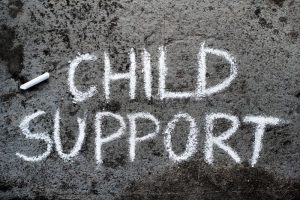
Ability to Pay Child Support
 Failure to pay child support in North Carolina may result in a Show Cause Order and Civil Contempt proceedings.
Failure to pay child support in North Carolina may result in a Show Cause Order and Civil Contempt proceedings.
Once entered, the Burden of Proof shifts, requiring the defendant/respondent to show why he or she should not be held in civil contempt of court.
Family law attorneys may refer to that person as the “contemnor.”
That traditionally has been a substantial burden, involving evidence of the ability to pay, and possibly more importantly, the inability to pay child support – Bill Powers, Charlotte Divorce Lawyer
Under the NC divorce laws, there cannot be a default judgment of sorts. The respondent contemnor may not be held in civil contempt by default.
Evidence must be introduced indicating the actual, present ability to pay child support. Indeed, the failure of the respondent to appear at the hearing is not deemed a “waiver.”
And as such, the family court judge is not relieved of the duty to make appropriate findings of fact that specifically address a present ability to pay.
Present ability to pay Child Support
A legal ruling by a District Court Judge in NC cannot be conclusory in nature without proper evidence before it. Conclusions of law, supported by sufficient findings of fact, must involve taking an inventory of sorts.
The Court must consider the responding party’s present financial condition.
Any such analysis of financial condition necessarily requires the present ability to pay. Changes in financial condition are therefore relevant and may indeed prove dispositive.
That can be frustrating, especially in circumstances where a substantial defense may be mounted by simply refusing to attend the hearing.
One would have to assume this will add to the complexity of family law litigation. It will be interesting to see how the trial courts interpret the gentle reminders of the Court of Appeal on child support and contempt issues – Bill Powers
What is a purge condition?
Anyone familiar with family court proceedings is familiar with compliance with a child support order and payment of the outstanding balance immediately prior to the hearing relating to the show cause contempt proceeding.
A civil order may be “purged” by coming into immediate compliance with the Court’s Order. In family court, upon a finding of willful contempt of court, the Judge normally sets “purge conditions,” providing the opportunity to purge the contempt.
Relative to contempt of court for child support, the judge is required to fully consider both sides of the present financial condition. A proper financial inventory demands balancing assets available to pay child support, income or lack thereof, and the reasonable needs of the responding parent.
That includes subsistence needs such as housing, food, use of a vehicle, and day-to-day living expenses. (FWSC – Food, Water, Shelter, Clothing)
The court must therefore also take into consideration income, the ability to work, and the willfulness of the lack of employment.
NC Child Support Laws – Ability to Pay
The family court judge must consider and balance both sides of the financial equation. The defendant’s living expenses are therefore an important part of any ruling on contempt of court for nonpayment of child support.
A responding parent’s reasonable and legitimate expenses are key considerations. The present ability to pay, to meet the purge condition (or purge conditions), requires balancing the remaining funds available after meeting the reasonable personal needs and expenses of the responding parent.
Ability to Work and Willful Unemployment
An absence of evidence is not necessarily the evidence of absence. The Court cannot draw a negative inference from the lack of evidence relative to the ability to pay.
The Court must have proper evidence before it. Lack of evidence will cause problems – Bill Powers, Family Law Attorney
Conclusions of law, predicated on improper findings, will be reversed by our appellate courts. The ability to work refers to the present ability to maintain a wage-paying job.
That does not necessarily mean one’s chosen profession or preferred method of employment. The court is the sole judge of the credibility of witnesses. Lack of credibility, standing alone, is likely not enough.
Charlotte divorce attorney – Bill Powers
If you have questions about past-due child support or a pending show cause Order in Mecklenburg County, please call now: 704-342-4357. You may also reach Bill Powers at Bill@CarolinaAttorneys.com
Learn More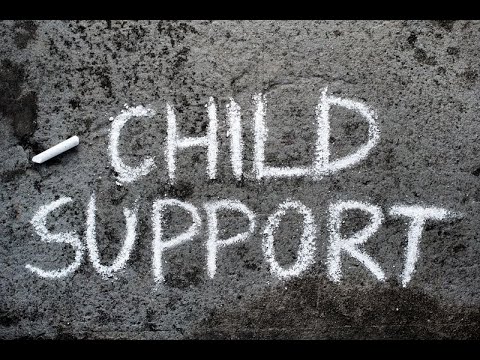
Components of Child Support Costs in North Carolina
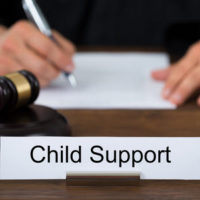 Today the examination will focus on the different components of child support in North Carolina. Before progressing any further, it is vital to note that the North Carolina courts will always try to act in the best interests of the child. If need be, the courts will take unorthodox actions to protect the children involved in any family dispute in North Carolina.
Today the examination will focus on the different components of child support in North Carolina. Before progressing any further, it is vital to note that the North Carolina courts will always try to act in the best interests of the child. If need be, the courts will take unorthodox actions to protect the children involved in any family dispute in North Carolina.
That being said, the North Carolina courts rely on three primary factors to determine child support: (1) gross monthly income, (2) childcare expenses and (3) insurance and healthcare expenses.
Gross Monthly Income
Under the North Carolina Child Support Guidelines, a fundamental component of child support involves the combined monthly income of both parents. North Carolina employs a table-based worksheet to determine the appropriate amount of child support.
The child support worksheets combine the total monthly income from both parents. Then the worksheets apply a multiplier for the number of children. The intersection of income and number of children represents the appropriate child support payment. Though it should be noted that the worksheet does account for the childcare as well as insurance and healthcare costs detailed in the following sections.
It is important to note that there are different worksheets for the varying types of child custody, including sole and joint custody. This ensures that the parents achieve an appropriate cost distribution to care for their children.
Childcare Expenses
Another aspect of the child support calculation in North Carolina involves childcare expenses. This category addresses the fundamental costs associated with raising a child, including but not limited to food, rent and transportation.
The childcare expenses category can also account for certain parental obligations as well. For example, if a parent has to spend money on daycare to search for a job, then they can add those costs to childcare expenses. The same can apply for money spent while the custodial parent attends school or other classes. In either case, the North Carolina courts have discretion to determine whether such costs should be included in childcare expenses.
Insurance and Healthcare Expenses
This category of child support in North Carolina centers on the costs of providing insurance and healthcare for the children involved. Expenses in this category typically include medical, dental and vision health insurance. This category also includes other healthcare costs that either parent incurs on behalf of the children involved.
Let Us Help You with Your Case
Whether you are dealing with child support, divorce or other aspects of family law, a proficient family law attorney can help you analyze important details and plan an appropriate strategy for a favorable outcome. Contact Powers Landreth PLLC in Charlotte, North Carolina for help today.
Resource:
nccourts.org/Forms/Documents/1226.pdf
Learn More
Child Custody & Support in North Carolina
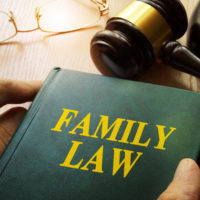 Today we will explore the North Carolina approach to child custody and child support. Before we delve into specifics, there is an overarching consideration we need to consider first. North Carolina places a high importance on the best interests of the child. In any determination of child custody or support, the court will examine what circumstances will yield the best outcome for the children involved.
Today we will explore the North Carolina approach to child custody and child support. Before we delve into specifics, there is an overarching consideration we need to consider first. North Carolina places a high importance on the best interests of the child. In any determination of child custody or support, the court will examine what circumstances will yield the best outcome for the children involved.
What are the Different Types of Child Custody in North Carolina?
There are three major types of child custody in North Carolina.
First, we will discuss sole custody. In this situation, one parent has sole decision-making power on behalf of the child or children. The other parent does not have any rights concerning the child or children.
Second, we will discuss joint legal custody and joint custody. Joint legal custody means that both parents share decision-making power on behalf of the child or children. Though joint legal custody does not necessarily involve shared physical custody. Joint custody means the parents share equally in decision-making power and physical custody of the child or children.
Third, we will discuss primary custody. In this situation, the parents share decision-making power on behalf of the child or children. But the breakdown of physical custody is less even. One parent has physical custody during the week; the other parent has physical custody on the weekends.
Having covered the basics of child custody, we can move on and explore the North Carolina approach to child support.
How Does North Carolina Determine Child Support?
The North Carolina Court System provides a number of worksheets to help calculate child support. Interested parties are encouraged to review applicable worksheets to gain a better understanding of the factors involved.
In most cases in North Carolina, there are four primary factors involved in the calculation of child support:
- Gross monthly income of one parent;
- Gross monthly income of the other parent;
- Monthly health insurance allocation of children; and
- Childcare costs related to work.
It is important to note that if the parents make less than $300,000 combined annually, then child support will be determined by the North Carolina Child Support Guidelines.
Is Child Support Permanent in North Carolina?
No, child support is not permanent in North Carolina. The limit on child support is generally the child’s 18th birthday or high graduation. Though there are extremely rare circumstances in which child support may extend beyond the child’s 18th birthday or high graduation.
It is important to note that the amount of child support can also change over time. If there is a substantial change in circumstances for either parent, then the courts may increase or decrease child support contributions.
Do You Have Questions for a Skilled Family Law Attorney?
Whether you are dealing with child custody or support, divorce or other aspects of family law, it is prudent to be cautious. There is a need to balance your personal interests against the needs of your family. Even the smallest issue can lead to disastrous consequences. That is why it is crucial to consult with a skilled family law attorney to design a strategic and balanced approach. Otherwise, you may not put yourself in the best possible position for a successful outcome.
Based in Charlotte, North Carolina, Powers Landreth PLLC has 20 years of combined legal experience. If you have questions about child custody or support, divorce or other aspects of family law, please feel free to contact us at your earliest convenience.
Resource:
nccourts.org/Forms/Documents/1226.pdf
Learn More
North Carolina Child Support Enforcement
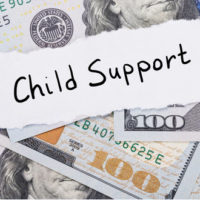 Child support is a legally mandated form of financial support issued by the court in North Carolina. This means that when a father or mother fails to pay the support that they owe, there are legal steps to take in order to procure the payments. By working closely with the Child Support Enforcement Office of North Carolina and a trusted family law attorney, you can hold the noncustodial parent accountable for their support obligation.
Child support is a legally mandated form of financial support issued by the court in North Carolina. This means that when a father or mother fails to pay the support that they owe, there are legal steps to take in order to procure the payments. By working closely with the Child Support Enforcement Office of North Carolina and a trusted family law attorney, you can hold the noncustodial parent accountable for their support obligation.
Many Options for Child Support Enforcement in Charlotte
Court ordered child support is enforced the Child Support Enforcement Office and the Support Enforcement Program of North Carolina. There are a variety of actions to take if the noncustodial parent continues to make late payments, partial payments, or refuses to pay child support altogether. The most effective method, according to North Carolina Health and Human Services, is income withholding. Income withholding goes directly after the noncustodial parent’s paycheck, from which the employer deducts a specific amount, specified by the NC Child Support Centralized Collections (NCCSCC). This option is viable even if the noncustodial parent is living out of state. Additionally, income withholding can be deducted from the following sources of income:
- Veteran’s disability benefits;
- Workers’ compensation;
- Social Security benefits; and
- Unemployment insurance benefits.
Additional options include going after the noncustodial parent’s federal and state tax refunds, claims on real or personal property, credit bureau reporting, monthly billing, or issuing a court action against the noncustodial parent, which will essentially force them to show up in court and answer to a judge directly, or else face serious penalties.
Issuing a Subpoena, Court Hearing, and Being Held in Contempt of Court
Under North Carolina law, the state of North Carolina may issue a subpoena for certain information to be provided by a noncustodial parent that may be responsible for paying child support. This information includes any “books, papers, correspondence, memoranda, agreements, or other information, documents, or records” that are relevant to:
- Child support establishment;
- Child support enforcement; and
- Paternity establishment.
Refusing to comply with a subpoena or a court order is contempt of court and can result in jail time and/or heavy fines. Additionally, you may request a court hearing. If the noncustodial parent refuses to show, or after the hearing the judge upholds the current court-ordered child support, and the noncustodial parent refuses to obey, they may be held in contempt of court. Their driver’s license may be taken away, they may be issued fines, or they may be sent to jail.
If You Are Being Denied Child Support Payments, Contact an Attorney Today
Child support is an essential tool for raising your child or children as comfortably and safely as possible as a single parent. You should not be left alone to pay for medical care, food, clothing, shelter, child care, and all the other essentials when there is another parent out there who has a legal responsibility to provide for their children. For help with child support enforcement, you need to enlist the assistance of an experienced family law attorney. Call the Charlotte, North Carolina attorneys of Powers Landreth PLLC today at 704-342-4357 for serious legal assistance.
Resources:
ncdhhs.gov/divisions/social-services/child-support-enforcement
ncleg.net/EnactedLegislation/Statutes/HTML/ByArticle/Chapter_110/Article_9.html
Learn More